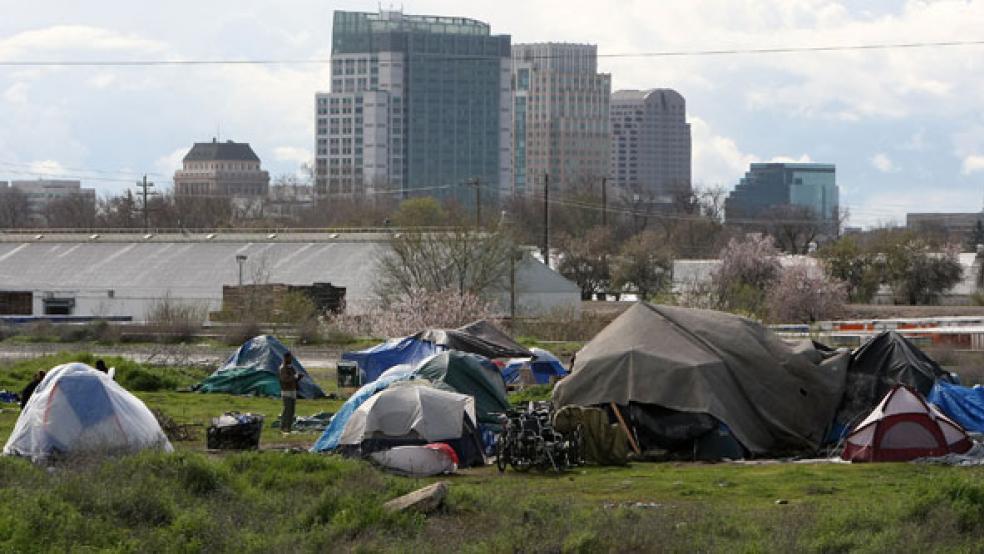It's a commonly held belief that there's a direct link between poverty and societal ills like crime and drug abuse. For generations governments and charitable organizations around the world have tried to address such ills in large measure by trying to improve the financial wellbeing of citizens. But the results of new study published in the British Journal of Psychiatry suggest the link between the two might not be so direct.
Amir Sariaslan is a researcher at Stockholm's Karolinska Institutet. He and his colleagues studied more than half a million Swedish children born between 1989 and 1993, looking at their family income between the ages of 1 and 15 and examining how much trouble they got into for criminal activity and substance abuse between the ages of 16 and 21. (Luckily for social scientists, Sweden keeps extensive records on its citizens.)
Related: How Income Inequality Can Hurt the Economy
Unsurprisingly, when Sariaslan and his team looked at childhood family income and serious adolescent mischief alone, they found that those children from the lowest income quintile had significantly higher "hazard rates" of being convicted for violent criminality and substance abuse versus those in the highest income quintile.
But when Sariaslan and his team factored in the behavior of cousins and siblings into those hazard rates to try and account for unknowns like genetic differences and household culture — "unobserved familial risk factors" — the strong correlation between low socioeconomic status and crime and drug abuse essentially vanished.
"Using traditional epidemiological methods, we found that low income in one's family of origin was indeed associated with higher risk of violent offending and substance misuse during adolescence," says Sariaslan. "However, the excess risks became marginal or disappeared completely when we gradually adjusted for familial risk factors."
Related: Does Poverty Lead to Poor Decision-Making?
What does that mean? For those who think simply giving money to the poor will automatically solve social ills, this study gives good reason for a rethink. On the other hand, dire monetary lack in childhood and its potential knock-on effects certainly can't be discounted. And Sariaslan is quick to point out that other studies have shown causal relationships between low income and bad behavior. He cites a recent Norwegian total-population study that found that children of parents in the lowest income decile were two times as likely to be convicted of a drug or violent crime versus children born to parents in the fifth decile.
Related: Poverty Moves into the ‘Burbs
"Future research is needed to validate [our] results," says Sariaslan, and he's right. More studies need to be done, and they probably will be. But in free market economies, money — or the lack thereof — will always be at least one of the determining factors in how well or how badly people turn out. It’s just probably not the only one.
Top Reads from The Fiscal Times:





